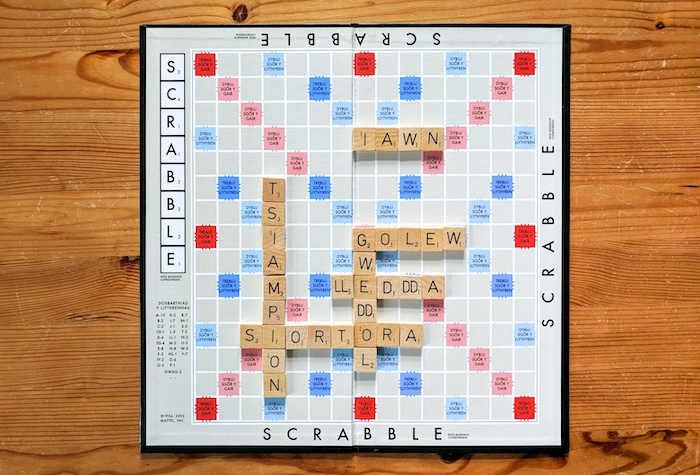
Are you fed up with using the same old hackneyed expression “Iawn, diolch!” whenever someone asks how you are in Welsh?
To be fair, it is by far the most common response to << sut wyt ti >>, even when native Welsh speakers talk amongst themselves, but if, as a learner, you’d like to spice things up a bit, why not give one of the following ten expressions a try!
1. Gweddol
Gweddol is a word that means “okay” or “well enough.” It doesn’t embody the same enthusism as “iawn” or “da iawn” but it’s appropriate if you want to downplay your response. As always, remember to mutate gweddol to weddol in a sentence such as, “Dw i’n weddol, diolch.“
2. Go lew
Go lew is fairly similar to gweddol and it translates into English as “not so bad.” As in English, you might be implying that things are good but not perfect by using this expression. Note that you’ll sometimes hear it pronounced as nolew (which comes from yn o lew).
3. Tsiampion
Tsiampion is one of my favourite Welsh words, even though it originally derives from the English word “champion”! When used as a response to someone asking how you are, it has the meaning of “excellent” or “very well” in Welsh. I’ve only ever heard it used in the north of Wales, so I’d be curious to know if some South Walians use it as well!
4. Siort orau
Another of my favourite responses, which has a very similar meaning to tsiampion, is siort orau. It literally translates as “best sort” in English and is mostly used in North Wales. Some people have told me that a good translation is “tickety-boo”!
5. Gwych / Grêt
A pair that should be easy to remember are gwych and grêt, both of which mean – you guessed it – “great” in English. If you can’t remember any of the others, these two are the perfect back-up. Just keep in mind that while gwych mutates to wych after yn, grêt does not. This is because borrowed words, especially those beginning with <<g>>, resist mutation (e.g. grant, garej, gêm, etc).

6. Fel y gog
A lovely expression you might hear on occasion is fel y gog. Although it literally means “like the cuckoo,” it has the figurative meaning of “to be in high spirits” or “to be very happy.” I’ve heard this used as a response to << sut wyt ti >> a few times since I began studying Welsh but it isn’t as common as the others on this list.
Interestingly this phrase is sometimes misinterpreted to mean “like the North Welsh person” because Gogs is the nickname South Walians give North Walians!
Note that you can replace y gog with a number of other words, such as y boi (boy), poni (pony), cricsyn (cricket), cneuen (nut), etc. All imply that the speaker is happy and in good health.
7. Rêl boi
This expression can be quite confusing for learners since it translates into “real boy,” yet can be used by both men and women as a response! Once again, it has the meaning of “great” or “very well” and is mostly used in North Wales.
This phrase can also be used as a compliment when describing other people. It implies that the person is very competent at a task that might normally be challenging, or that they defied expectations by doing something exceptionally well. (e.g. Oedd John yn rêl boi efo’r plant. = John was great with the children.)
8. Lled dda
A useful expression that pops up in conversation quite frequently in South Wales is lled dda, which means “fairly good.” Some speakers drop the d in speech, so it becomes lle’ dda.
9. ‘Sdim iws achwyn / cwyno
This expression literally translates as “No use complaining,” but it is very similar to the English “Can’t really complain!” Whether you choose achwyn or cwyno to express the verb “complain” all comes down to the dialect you speak. You can also replace ‘sdim iws with alla i ddim / fedra i ddim (I can’t) if you literally want to say “I can’t complain.”
10. Palu / rhygnu ymlaen
If you want to say that you are “still ploughing on” in Welsh, you can choose between a couple of expressions: dal i balu ymlaen (still digging on) or dal i rygnu ymlaen (still scraping along). Both suggest that you’re managing to survive despite life’s challenges. An alternative expression is dal i fynd which literally means “still going.”
Can you think of any other responses to << sut wyt ti >> in Welsh? If so, please share them below!
